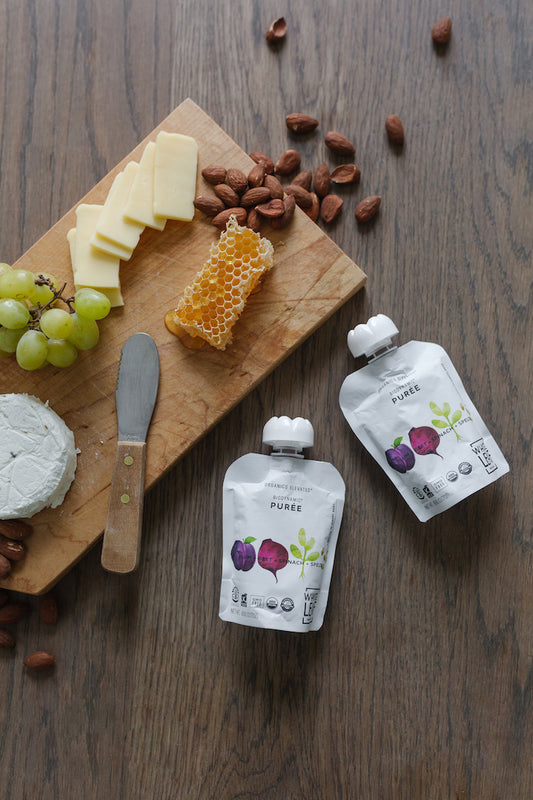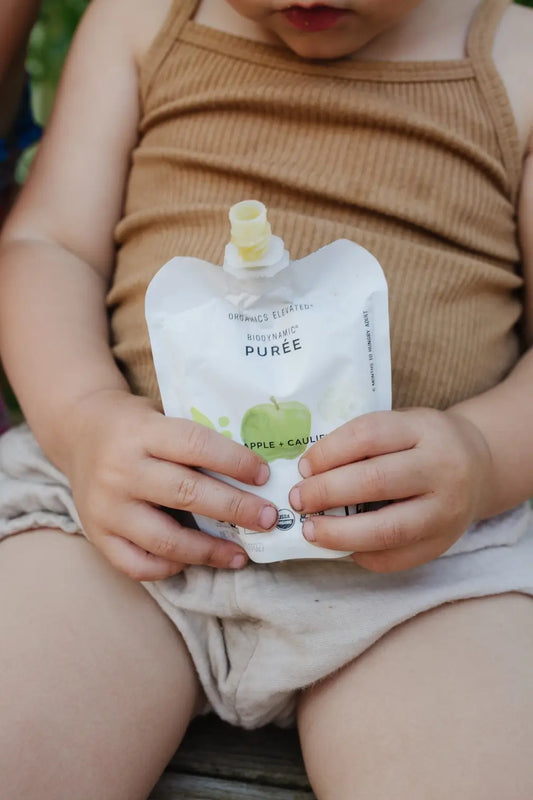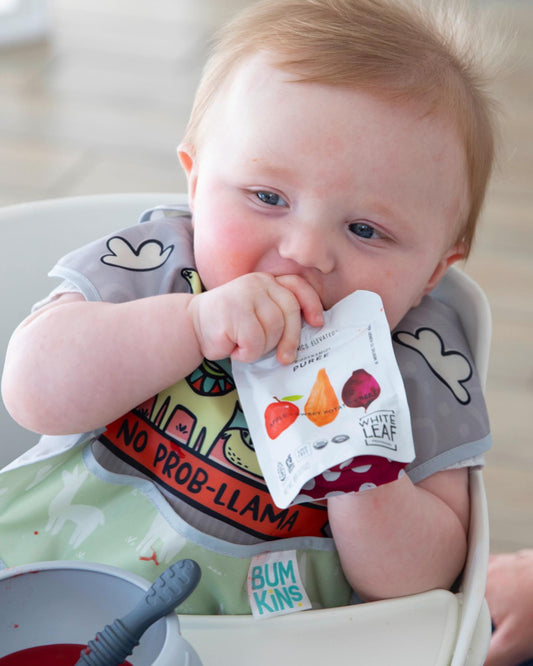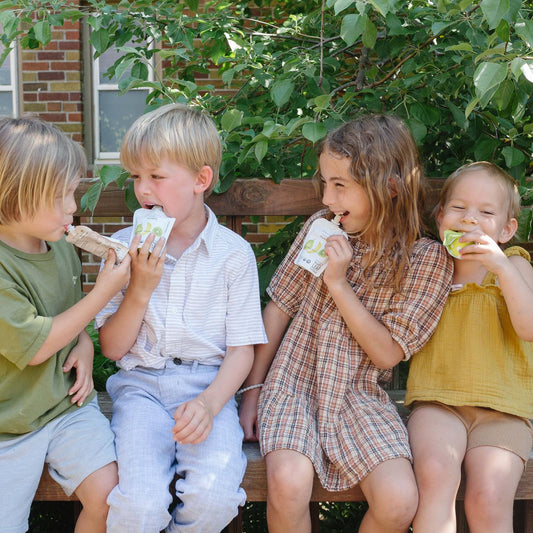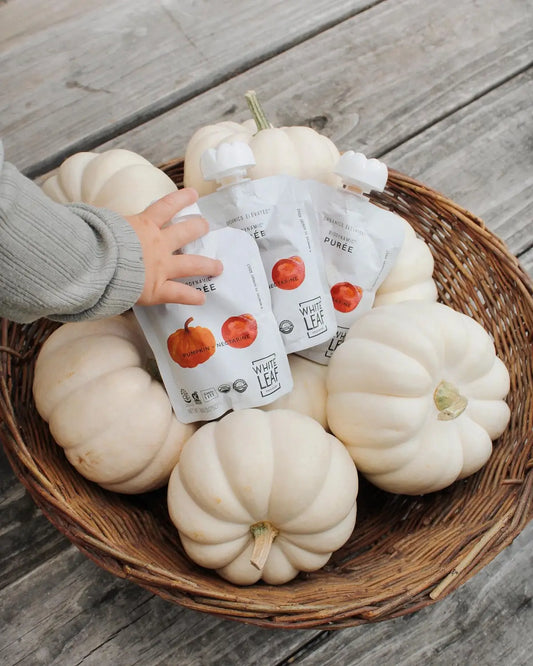Is Applesauce Actually Healthy?
Kate KavanaughWe hear the question more often than you might think: Is applesauce actually healthy? And we get it—we’ve asked it ourselves. That question, and the search for better answers, is part of what drove us to create White Leaf Provisions in the first place.
The short answer? It can be. But it depends on how the apples are grown, how they’re processed, and what gets added (or left out) along the way. Not all applesauces are created equal—and the gap between most products on the shelf and truly nourishing ones is bigger than most people realize. At White Leaf, we’ve taken great care to make sure our applesauce is good from farm to pouch.

Why Most Applesauces Aren’t as Healthy as They Seem
Turn over almost any pouch of applesauce, and you’ll find a list of ingredients that often includes hidden sugars—whether they’re processed sugars or synthetic sweeteners. These added sugars have been linked to inflammation, blood sugar spikes, and disruption of the gut microbiome (Sarron et al., 2020).
Some brands also use additives like synthetic ascorbic acid, often derived from genetically modified corn, and “natural flavors” sourced from synthetic or petroleum-based chemicals. And marketing language—words like “real” or “natural”—aren’t regulated, so they often don’t tell the full story. You can read more about how to decipher fake healthy labels here.
At White Leaf, our mission is to change that.
What Makes White Leaf Provisions Different
Healthy apples start with healthy soil. That’s why we work with farmers who use regenerative agriculture practices—methods that rebuild soil health instead of depleting it. These farms avoid using chemicals and nurture the microbial life that helps deliver nutrients from the soil to plant roots. The result? More nutrients in the apple—and more flavor, too.
But it doesn’t stop at the tree. These healthy soils support ecosystems full of life, from insects and birds to fungi and foxes. And those thriving ecosystems help sequester carbon and hold water, creating positive feedback loops that make the soil even more resilient (and nutrient rich) over time (Montgomery et al., 2022).
Studies show that regeneratively grown food contains higher levels of vitamins and minerals compared to conventional ones (Montgomery et al., 2022). Apples grown this way have more antioxidants—like quercetin—that are linked to immune and inflammatory health benefits (Boyer & Liu, 2004).
They also taste better. Nutrient-dense apples tend to have higher ‘Brix’, a measure of natural sweetness, so there’s no need for added sugars. That’s why we keep it simple: just apples.
We want to ensure that’s the case which is why we also go further with testing. Every pouch is Clean Label Project Certified and Glyphosate Residue Free, ensuring our applesauce is free from contaminants that can damage gut health (Sarron et al., 2020).
In fact, we know that our applesauce can help build gut health.

The Health Benefits of Truly Clean Applesauce
Apples are naturally rich in pectin—a prebiotic fiber that feeds beneficial gut bacteria and supports gut health (Jiang et al., 2016). They also contain antioxidants that reduce inflammation and support heart and immune health.
Even better? Children who eat apples regularly tend to have better overall nutrition and lower risk of obesity (Nicklas et al., 2015). That makes applesauce a convenient and nourishing option for toddlers, kids, and grown-ups alike.
The Bottom Line
Not all applesauces are created equal. Many contain added sugars and apples grown in poor conditions. Ours is different: just one ingredient, sourced from regenerative farms, nutrient-dense, and tested to be free from harmful chemical residues.
It’s a difference you can taste—and one you can feel. We know your family is the apple of your eye—and we believe the apples that feed them should be just as nourishing as your care.
That same care guides everything we make at White Leaf Provisions–care for your family and care for the land that feeds them. From fruit, veggie, and oat blends, every product we offer is made with the same commitment to soil health, nutrient density, and transparency.





